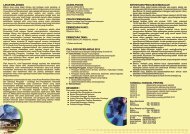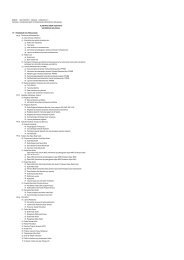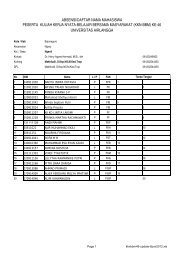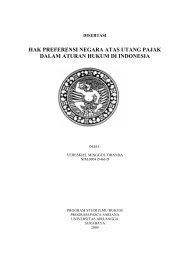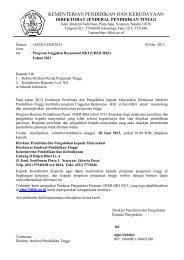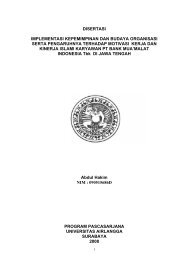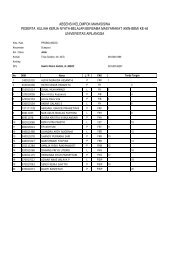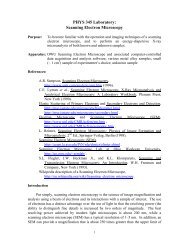Nietzsche's Naturalistic Ethics - UNAIR | E-Book Collection
Nietzsche's Naturalistic Ethics - UNAIR | E-Book Collection
Nietzsche's Naturalistic Ethics - UNAIR | E-Book Collection
Create successful ePaper yourself
Turn your PDF publications into a flip-book with our unique Google optimized e-Paper software.
only value it in ourselves, but in others as well. This entails that no rational being should ever beused merely as a means, and not as an end. For otherwise, a rational agent could be used merely asa means to something that has value only because rational agency confers it. This is a practicalperversity at best, and possibly a kind of contradiction. Moral agency, on the Kantian view, isshaped by consistency considerations. 25This account is developed from a first-person point of view, answering the question “Whatought I to do?” by advising the agent to make up her mind while respecting constraints imposed byher rational nature. Any approach to morality not developed from the first person point of view failsto answer that question and is thus deficient from the standpoint of Kantian morality. We can seenow also how this account is intertwined with Nietzsche’s. In both accounts, the emergence ofmorality is tied not merely to the development of the mind, but to the emergence of selfconsciousness.That is why Korsgaard appeals to Nietzsche. 26 Yet while on the Kantian picturereflectivity appears as an activity of the mind constrained in virtue of its rationality, the emergenceof self-consciousness figures in Nietzsche’s account only by way of expanding the range of targetsof anger and resentment. Self-consciousness plays a passive role for Nietzsche. Also, the firstperson has a different standing for Korsgaard’s Kant than for Nietzsche. Being the starting pointfor Kantian morality, the ideal of unity of agency, at least as a regulative ideal, applies to eachrational being. We have not yet said enough to state Nietzsche’s ideal of unity, but it should be clearthat it must be an a-moral ideal, an ideal “beyond good and evil” unavailable to most individual.25 This is the Formula of Humanity version of the Categorical Imperative; see Korsgaard(1996b), chapter 4, and also Wood (1999), chapter 4. Many details remain to be filled in, but thesubsequent discussion does not turn on such details.26 Korsgaard (1996a) suggests that Nietzsche’s views (and Freud’s) are “harmonious”with hers (p 158).27




